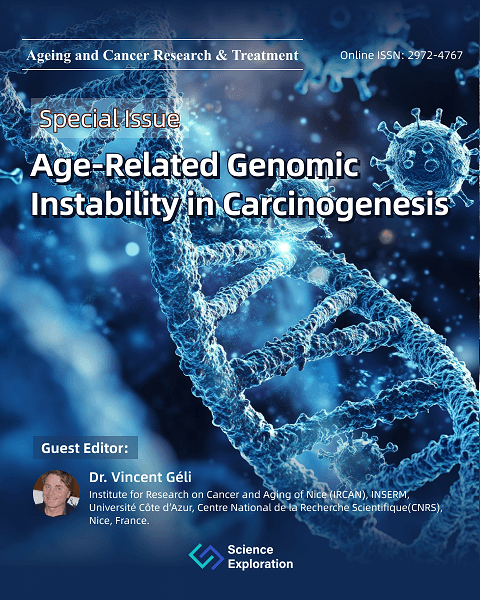Guest Editor(s)
Special Issue Information
Aging is defined biologically as a progressive and inexorable failure of homeostasis leading to an increased susceptibility to develop many diseases. Over the past two decades, our understanding of aging biology has made remarkable advances allowing to envision unifying principles. In particular, a tentative categorization of these principles emphasizes many "execution" pathways of aging. At the mechanistic level, it is widely accepted that aging is due to limitations in somatic maintenance, leading to a gradual increase in DNA and macromolecular damage, telomere shortening, accumulation of senescent cells, and depletion of stem cells. This is accompanied by deregulated detection of nutrients, metabolic and epigenetic changes, loss of proteostasis and autophagy, impaired intercellular communication, as well as a decline in immune function combined with chronic inflammation. However, very little is known on the time-dependent mechanisms that orchestrate the appearance, the intensity, the organ-dependence and the consequences of these aging hallmarks to cancer.
It is now clear that mechanisms of aging are fundamental for the initiation of carcinogenesis and tumor progression. For instance, genomic instability, telomere attrition, and epigenetic alterations occur in both aging and cancer and many times their existence is causative for cancer. Along the same line, cellular senescence is increased in aged tissues and in pre-tumor lesions, but malignant tumors escape senescence. Similarly, stem cell depletion occurs during aging but provides a niche for tumorigenesis. Other processes, such as proteasome activity and autophagy vary in the opposite direction. Overall, cancer can be considered a disease of aging, however a better understanding of how aging leads to cancer initiation or progression is needed.
A hallmark of old cells is the accumulation of mutations in their genome. Indeed, DNA damage can escape the acumen of our repair systems and create somatic mutations that can lead to irreversible cellular dysfunction caused by the loss or gain of function of one or more genes. This explains why cancer, whose origin is linked to the appearance of mutations, is a disease of aging. Unrepaired DNA damage may cause cells to die by apoptosis or to enter senescence. Senescent cells alter tissue homeostasis by secreting senescence-associated factors, affecting surrounding cells and ultimately promote the progression of cancer by reprogramming the tumor microenvironment. Senescent cells are themselves eliminated by the immune system but are capable of developing strategies to escape the immune system in a way similar to what cancer cells do. In addition, with aging, a threshold may be reached, beyond which the accumulation of senescent cells exceeds the capacity of immune cells to eliminate them. Finally, the immune system, in particular the natural killer cells and T cells, plays a key role in hindering the development and progression of tumors. This immune response is complex, strongly influenced by the context and based on coordinated cellular communication. With age, various events lead to a general decline in the effectiveness of the immune system, a process referred to as "immunosenescence".
To what extent do all these age-regulated processes promote genetic instability, or prevent the elimination of cells carrying a burden of mutations, ultimately generating tumor cells, is a central question that will be covered in this special issue.
Contact Us
Journal Editorial Office Email: acrtjournal@sciexplor.com
For Author Instructions, please refer to: www.sciexplor.com/acrt/author_instructions
For Online Submission, please login at: http://www.intellimanus.com/#/login?journalPath=acrt

